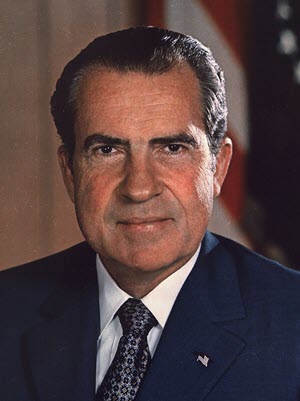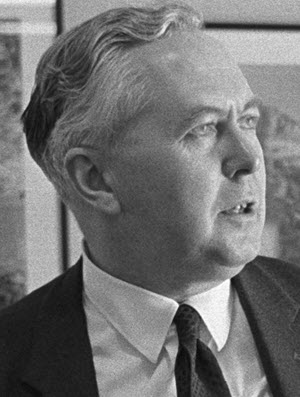| |
Date |
Event(s) |
| 1 | 1955 | - 1 Nov 1955—30 Apr 1975: Vietnam War

The Vietnam War took place from 1 November 1955 to the fall of Saigon on 30 April 1975, with US involvement ending in 1973. It was the second of the Indochina Wars and was officially fought between North Vietnam and the government of South Vietnam. The North Vietnamese army was supported by the Soviet Union, China, and other communist allies; the South Vietnamese army was supported by the United States, South Korea, the Philippines, Australia, Thailand and other anti-communist allies.
An anti-war movement gained strength in the US. Nixon appealed to the "silent majority" of Americans who he said supported the war but revelations of the My Lai Massacre, and the 1969 "Green Beret Affair" provoked national and international outrage. In 1971 the Pentagon Papers were leaked to The New York Times. The top-secret history of US involvement in Vietnam, commissioned by the Department of Defense, detailed a long series of public deceptions on the part of the US government.
|
| 2 | 1969 | - 20 Jan 1969—9 Aug 1974: Richard Nixon - 37th US President

Richard Milhous Nixon (January 9, 1913 – April 22, 1994) was the 37th president of the United States from 1969 until 1974 and the only president to resign from the position.
Nixon ended American involvement in the war in Vietnam in 1973 and brought the American POWs home, and ended the military draft. Nixon's visit to China in 1972 eventually led to diplomatic relations between the two nations and he initiated détente and the Anti-Ballistic Missile Treaty with the Soviet Union the same year.
By late 1973, the Watergate scandal escalated, costing Nixon much of his political support. On August 9, 1974, he resigned in the face of almost certain impeachment and removal from office. After his resignation, he was issued a controversial pardon by his successor, Gerald Ford.
|
| 3 | 1970 | - 19 Jun 1970—4 Mar 1974: Edward Heath - 68th British Prime Minister

Sir Edward Richard George Heath (9 July 1916 – 17 July 2005), known as Ted Heath, was a British politician who served as Prime Minister of the United Kingdom from 1970 to 1974 and Leader of the Conservative Party from 1965 to 1975. He was a strong supporter of the European Community (EC), and after winning the decisive vote in the House of Commons by 336 to 244, he led the negotiations that culminated in Britain's entry into the EC on 1 January 1973. It was, says biographer John Campbell, "Heath's finest hour".
Heath's premiership also coincided with the height of the Troubles in Northern Ireland, with the suspension of the Stormont Parliament and the imposition of direct British rule. Unofficial talks with Provisional Irish Republican Army delegates were unsuccessful, as was the Sunningdale Agreement of 1973.
|
| 4 | 1974 | - 4 Mar 1974—5 Apr 1976: Harold Wilson - 69th British Prime Minister

James Harold Wilson, Baron Wilson of Rievaulx, (11 March 1916 – 24 May 1995) was a British Labour politician who served as Prime Minister of the United Kingdom from 1964 to 1970 and 1974 to 1976.
Wilson's first period as Prime Minister coincided with a period of low unemployment and relative economic prosperity, though hindered by significant problems with Britain's external balance of payments. In 1969 he sent British troops to Northern Ireland. After losing the 1970 election to Edward Heath, he spent four years as Leader of the Opposition before the February 1974 election resulted in a hung parliament. After Heath's talks with the Liberals broke down, Wilson returned to power as leader of a minority government until another general election in October, resulting in a narrow Labour victory.
- 1 Apr 1974: Berkshire County boundary changes

Berkshire is one of the "home counties" in England. It was recognised by the Queen as the Royal County of Berkshire in 1957 because of the presence of Windsor Castle.
In 1974, the towns of Abingdon, Didcot, Faringdon, Wallingford and Wantage and the surrounding villages were transferred to Oxfordshire. This area is Barrett heartlands so you will see many references to these places as part of Berkshire, representing the historical locations.
- 9 Aug 1974—20 Jan 1977: Gerald Ford - 38th US President

Gerald Rudolph Ford Jr. (born Leslie Lynch King Jr.; July 14, 1913 – December 26, 2006) was an American politician who served as the 38th president of the United States from August 1974 to January 1977.
After the resignation of Richard Nixon, Ford automatically assumed the presidency. His 895 day-long presidency is the shortest in U.S. history for any president who did not die in office. As president, Ford signed the Helsinki Accords, which marked a move toward détente in the Cold War. He presided over the worst economy in the four decades since the Great Depression, with growing inflation and a recession during his tenure. In one of his most controversial acts, he granted a presidential pardon to President Richard Nixon for his role in the Watergate scandal.
|


